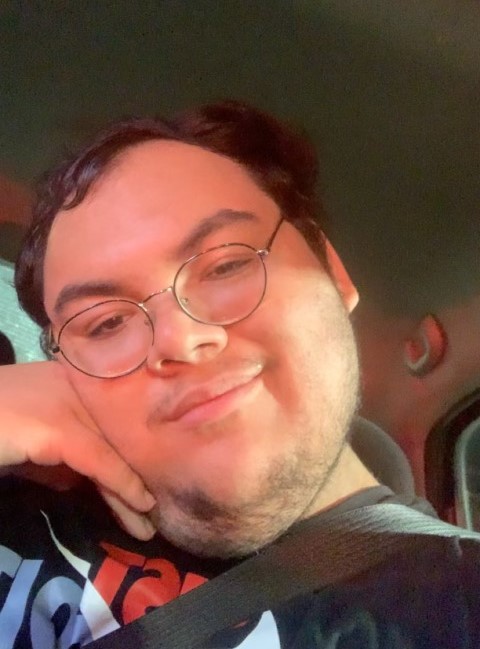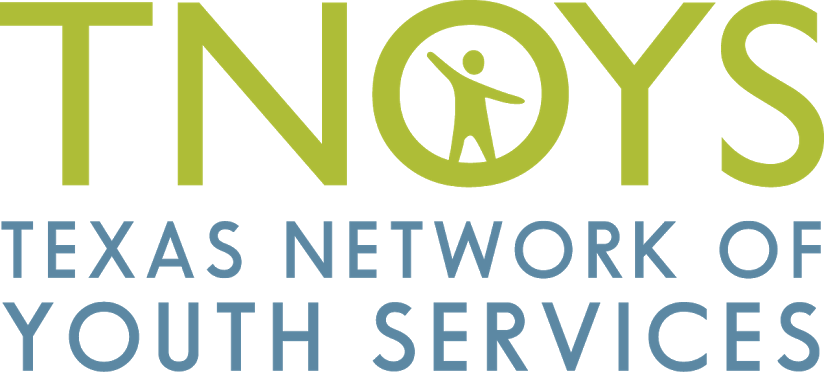
TNOYS’ Youth Adult Leadership Council (YALC) is a nine-month leadership development program for youth and young adults between the ages of 16 to 25 who have experience with foster care, homelessness, and systems-involvement, and who have a demonstrated interest in or potential for leadership or advocacy.
TNOYS recently spoke with Exzaniel Ocon, a 20-year-old YALC member and youth advocate from San Antonio, on his experience with foster care and how he thinks the foster care system could be improved. Zane also provided his thoughts on the importance of youth advocacy. The following interview has been edited for length and clarity.
Experience in Foster Care
TNOYS: When did you first enter foster care?
Exzaniel: I entered foster for the first time at the age of six. I was only in care for a few months and shortly after I was reunited with my family.
Years later, when I was 15, I was in a situation at home that placed me and my siblings back in foster care. I’ve been in foster care ever since.
I recently left extended care. I used to live in a supervised independent living apartment but left it for a housing opportunity that unfortunately didn’t pan out so now I’m trying to live on my own. I’ve been looking for another apartment and working to help with the next steps.
TNOYS: What has your experience been like in foster care?
Exzaniel: While my experience in foster was not overall positive, I would say that I was fairly lucky in my experience.
Sometimes I experienced a lack of open-mindedness when it came to LGBTQ+ topics and in some group homes, I didn’t feel as welcomed because of my identity.
However, through my experience in foster care, I was able to create some valuable relationships with people that continue to be in my life today. Some staff members that I met along my journey started as mentors and eventually have become good friends. They have helped me navigate the foster care system.
Improving Foster Care
TNOYS: What would have helped you as a youth in the foster care system?
Exzaniel: I think service providers or staffers who work directly with youth should undergo mandatory trainings or workshops to better support youth, especially LGBTQ+ youth. Having better trained staffers would have greatly improved my experience.
I think better educating staffers, service providers, or anyone working with youth on issues or topics that concern youth is critical to support them and meet their needs. For example, more trainings for these providers/staffers on trauma, the experiences of youth of color, LGBTQ+ issues, and other topics of importance would be beneficial for everyone.
My hope is that the foster care system could help create more of a safe space for LGBTQ+ youth to better support them along the way.
Additionally, it would be great if there was a way for youth within foster care to provide anonymous feedback to help improve the system. I strongly believe that more people within foster care should listen to the youth and hear what ideas they have to improve the system.
TNOYS: What would be helpful as a youth transitioning out of foster care to adulthood?
Exzaniel: I think providing more funding for resources that support youth who are transitioning out of foster care is important. For example, resources and programs like the Preparation for Adult Living (PAL) program can be extremely helpful for youth that are going into adulthood.
Supporting more programs like PAL or housing voucher programs are great ways to ensure youth can transition into adulthood from foster care.
Importance of Youth Advocacy
TNOYS: What issues are important to you? Why do you advocate for these issues?
Exzaniel: Advocating for foster care and mental health are important to me. I think mental health should be further acknowledged and addressed through services that are currently provided to youth while in care.
Also, we need to invest in youth and hear them out. They have many ideas and aspirations. We need to make more of an intentional effort to provide youth with opportunities to be heard.
TNOYS: Why are you an advocate for youth?
Exzaniel: My siblings have played a big role in influencing my advocacy. Over time and through my experience, I have learned to express my needs and concerns – essentially advocate for myself. I don’t want youth to be stuck in a position where they can’t resolve their situation and suffer traumatic experiences.
I want youth to be empowered to use their voice, speak up, and ask questions even if they would deem them as idiotic. I want them to know it’s okay to not know everything – that’s why you ask questions.
TNOYS: What does youth-adult partnership mean to you?
Exzaniel: Honestly, it means listening to each other on a level playing field. There’s a sense that an adult has more power over something.
A youth’s lived experience should be more than enough to be seen as an equal and be on a level field with an adult.
Learn more about TNOYS’ Young Adult Leadership Council here.
